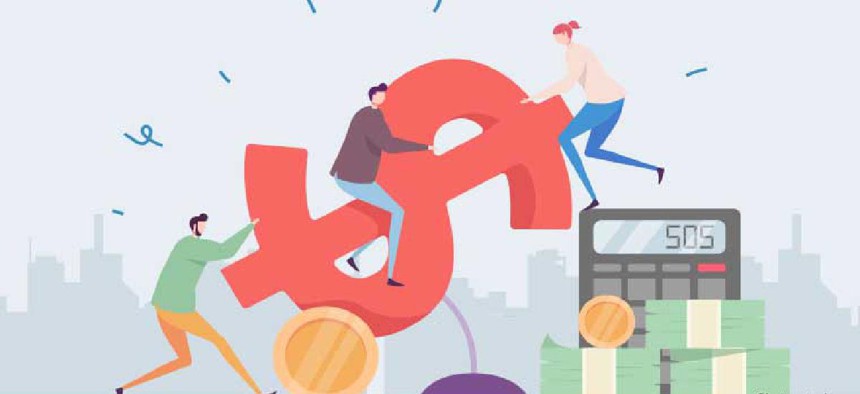Lawmakers explore tech-friendly banking

As House Democrats consider future relief packages tied to the coronavirus outbreak, they're exploring how make the banking system more tech-friendly and expand access to financially distressed groups using digital services.
Although the CARES Act was signed in late March, as many as 35 million people scheduled for a relief payment still have not received one, according to a June 8 background memo drafted by the House Financial Services Committee's Task Force on Financial Technology.
As House Democrats consider future relief packages tied to the coronavirus outbreak, they're exploring how make the banking system more tech-friendly and expand access to financially distressed groups using digital services.
According to the background memo, the IRS has dispersed more than $202 billion in stimulus funds to 117 million Americans through direct deposit, $55 billion to 35 million Americans through paper checks and an additional $9 billion to approximately 5.7 million Americans through pre-paid debit and direct express cards.
"Even with several distribution methods for recovery rebates, members of vulnerable populations were expected to experience severe delays in receiving recovery rebates or to receive no recovery rebate at all," the committee wrote.
Many of those left behind have never opened a bank account, don't make enough income to warrant filing their federal taxes or lack stable housing or mail addresses. Still others groups may lack broadband internet access to use online tools or be unfamiliar with how to use prepaid cards.
One idea that House Democrats have already embraced: opening up a digital wallet with the U.S. Federal Reserve through its existing FedAccounts platform. Money in FedAccounts accrues substantially more interest than a checking account at a private bank, could provide an alternative to more predatory nonbank service providers, like payday loans.
However, such accounts are currently available only to banks and government entities. Committee Chairwoman Maxine Waters (D-Calif.) has proposed legislation that would set up digital wallets through FedAccounts for most Americans. The bill would also establish new, monthly stimulus payments of up to $2,000 per individual until unemployment drops to within at least two percentage points of the pre-recession norms.
University of California, Irvine Professor Mehrsa Baradaran called for the Federal Reserve to partner with local post offices spread out around the country, not only to disperse potential future stimulus payments but also to provide basic banking services and close the "cash-digital divide" between the haves and the have nots.
"On the consumer side, you could go to the local post office, deposit your money, take cash out of the ATM without fees, you could set up automatic bill pay through online or mobile banking [and] get a debit card and use it for online shopping," Baradaran told the committee.
Doing so would require certain infrastructure, like installing ATMs and scaling up the Fed's ability to process real-time payments, but Baradaran and other experts on the panel said it "well within" the government's technological and institutional capacity.
There was consensus among members and witnesses that some kind of modernization is needed for the financial services sector to keep pace with 21st century technologies.
Chris Giancarlo, former chairman of the U.S. Commodity Futures Commission, said that much like how underinvestment in America’s physical infrastructure has led to crumbling roads and bridges, a lack of innovation in the financial services sector is exposing the age and limitations of current technologies and processes.
"Unless we act, this coming wave of innovation will put enormous strain on our aged financial systems," he said.
A longer version of this article was first posted to FCW, a sibling site to GCN.





